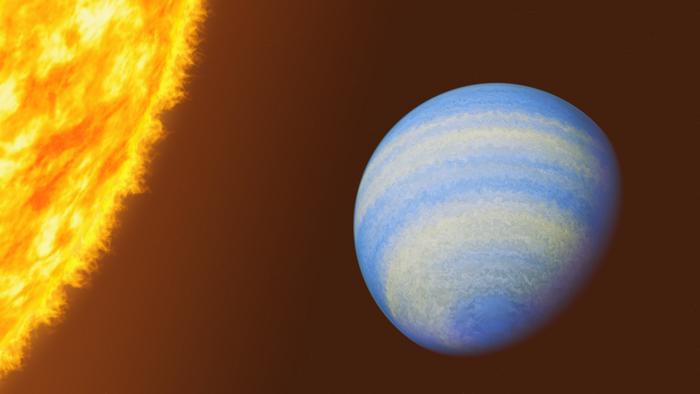“Sulfur is a vital element for building more complex molecules, and—like carbon, nitrogen, oxygen, and phosphate—scientists need to study it more to fully understand how planets are made and what they’re made of,” said Dr. Guangwei Fu.
How do exoplanets smell? This is what a recent study published in Nature hopes to address as a team of researchers investigated the atmosphere of HD 189,733 b, which is a “hot Jupiter” located approximately 64 light-years from Earth, discovering this unique exoplanet’s atmosphere contains hydrogen sulfide, which is a byproduct of sulfur and known for its rotten egg-like smell. This discovery holds the potential to help astronomers better understand the atmospheric composition of exoplanets and how these compositions can drive the interior processes of these exoplanets, as well.
Artist’s illustration of HD 189,733 b. (Credit: Roberto Molar Candanosa/Johns Hopkins Univeristy)
“Hydrogen sulfide is a major molecule that we didn’t know was there,” said Dr. Guangwei Fu, who is an assistant research scientist at Johns Hopkins University and lead author of the study. “We predicted it would be, and we know it’s in Jupiter, but we hadn’t really detected it outside the solar system. We’re not looking for life on this planet because it’s way too hot but finding hydrogen sulfide is a steppingstone for finding this molecule on other planets and gaining more understanding of how different types of planets form.”
